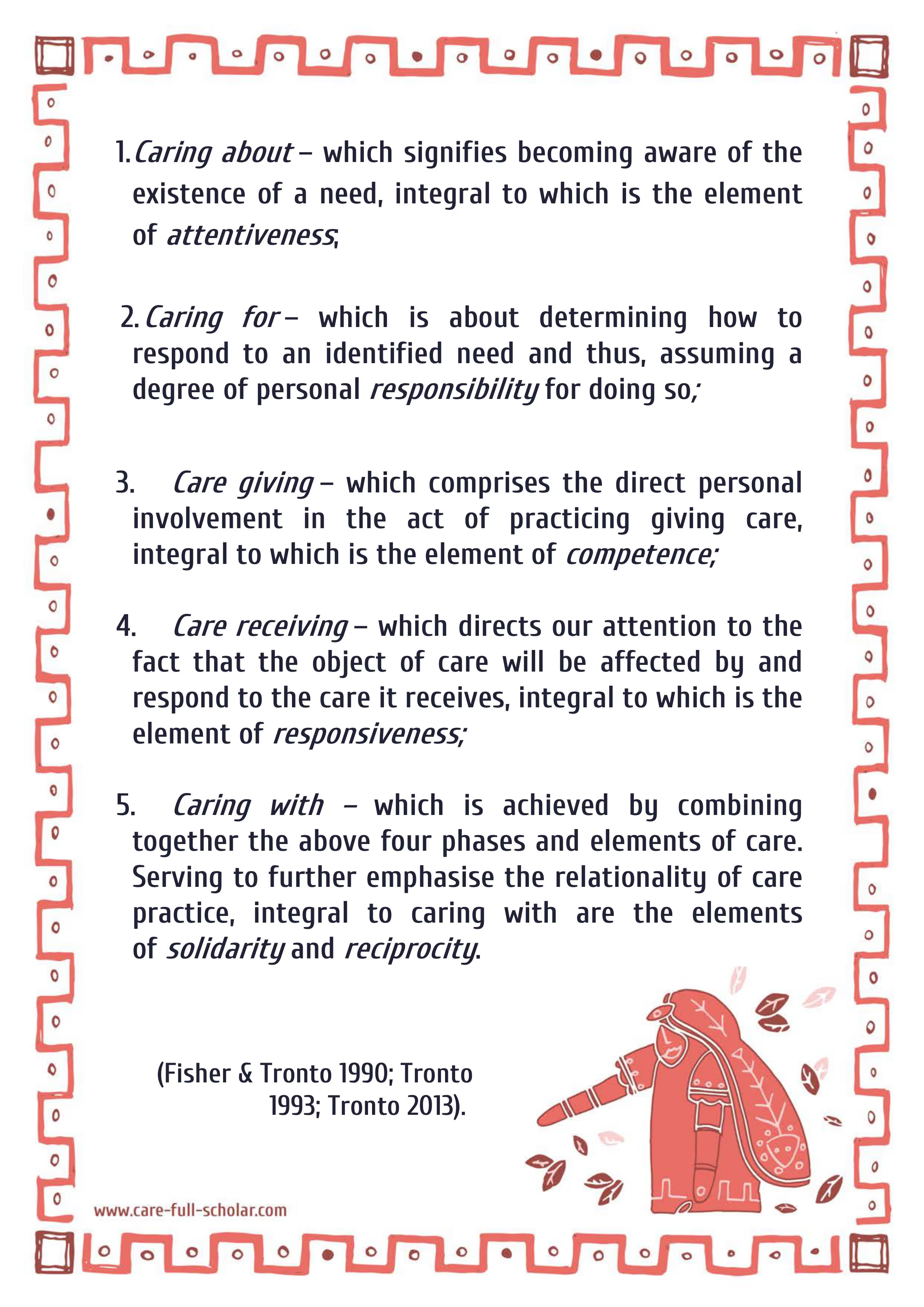Feminist Ethics of Care
Taking as our starting point Joan Tronto’s theorisation of care ethics (1987, 1993, 2013; see also Fisher and Tronto 1990), in this MOOC we centre our understanding of care-full scholarship around the idea of ‘good’ care as constituting a practice, comprising five interconnected phases of caring and associated ethical elements or moral principles of care. Namely:

The above integrated care framework put forward by Fisher and Tronto, encompasses not only individual care concerns but also draws attention “to the ideal of care as a universalist principle and to the importance of constitutional recognition of an ethic of care” (Rummery & Fine 2012: 326). Indeed, the fifth phase of caring with (although initially absent from the series of phases proposed by Fisher and Tronto), can be thought of in simplest terms as representing the sum of, or indeed perhaps more accurately, ‘more than’ the sum of the individual phases.
Caring with can also be viewed as the central means by which we might one day achieve Fisher and Tronto’s ultimate definition of care as:
a species activity that includes everything that we do to maintain, continue, and repair our 'world' so that we can live in it as well as possible. That world includes our bodies, ourselves, and our environment, all of which we seek to interweave in a complex, life-sustaining web (Fisher and Tronto 1990:40)



